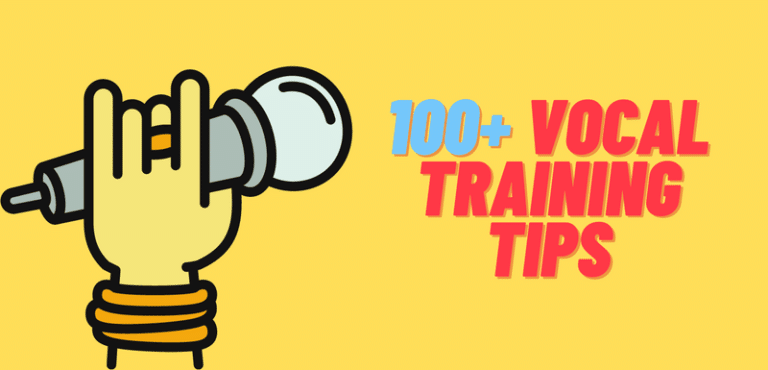How to Sing with the Diaphragm – It’s NOT what you think!
This is one of the most misunderstood concepts of singing that’s caused a lot of confusion and harm to so many voices.
Most people, maybe you are one of them, start out singing with the “commonly-known” knowledge that you have to sing with the diaphragm. So, you pushed your stomach like crazy like most people and end up straining the voice most of the time.
I have come to realize that conventional wisdom is wrong most of the time. It is suited for the general public to easily grasp a hold of the knowledge of professional areas they know nothing about.
So today, let’s talk about the issue of How to Sing with the Diaphragm and clear out all the misnomers and myth surrounding this practice, so you can sing with a completely free and full voice.
You don’t have to be a Body-builder to sing well
Have you ever heard voice teachers say that you have to work on your abs in order to have enough “support” for singing.
The truth is – you have more than enough abdominal strength than you ever need to support your voice. In fact, too much!
Dr. Hubert Noe of Vienna, one of the leading vocal scientist in the world, says, “The large body muscles are needed for much more power demanding task than singing.” (Dean Kaelin. Teaching Great Singing, Salt Lake City: deankaelin.com. pg.119.)
According to Dr. Noe, if doing one sit-up requires a person to lift 50 kg of upper body weight, a strong forte sound only requires 0.5 kg of air pressure on the delicate vocal cords(folds).
Do you see my point? In term of muscular strength, the body could easily over-power the vocal folds with excessive air pressure to a degree that it could, at best, cause strain on the voice, or at worst, cause permanent vocal damage.
So what should you do with the diaphragm when you sing? RELAX!
That’s right. You heard me right! Relax!

Listen to what the greatest tenor since Caruso – Beniamino Gigli, has to say, “As soon as I commence to sing I forget all about the diaphragm and ribs…” (E. Herbert Caesari. The Voice of the mind. London: Robert Hale Limited, 1971. pg. 27.)
If the great old-school Italian operatic tenor didn’t do much with his diaphragm when singing, how should you sing in pop, contemporary or whenever genre you’re in?
As soon as I commence to sing I forget all about the diaphragm and ribs..
Beniamino Gigli
Legendary Italian Tenor

7 Reasons why you should relax those diaphragms
It is said again and again that “support” is so important for singing. In Italy, it’s been said traditionally that “He who knows how to breathe well, knows how to sing well.”
Sadly, there are different schools of singing methods that conflict with each other, even in Italy.
Listen to what the legendary English voice teacher – E. Herbert Caesari, has to say about the statement above, “…less than a half-truth. It borders on stupidity…Good singing includes very much more than mere breathing capacity or efficiency.” (E. Herbert Caesari. The Voice of the mind. London: Robert Hale Limited, 1971. pg. 185.)
Here are the 7 reasons why you should relax instead of tighten those diaphragm and ab muscles:
- Vocal folds are too delicate to handle strong air pressure.
- Sound is produced by the vocal folds, not the diaphragm.
- Muscular coordination and balance are more important than brute force.
- It takes much less air pressure than you think to produce a big sound.
- Why push more than you have to when you can sing easy
- The diaphragm is used mainly for inhalation, not exhalation.
- Your main focus should be on vocal fold maneuver, not the diaphragm.
Your vocal folds have the size of a quarter or dime, which is much, much smaller than those abs you got down there. You think if they were to compete, which one wins? Give those vocal folds are rest and relax those abs when you sing, okay?
To convince you even more about relaxing those abs when singing, let me give you an illustration:

Imagine you driving a car – what would happen if you focus all your attention on how you step on those gas petals (diaphragm) instead of monitoring on where you’re going with the steering wheel (vocal folds)?
You’d crash the car! You see my point?
It borders on stupidity…Good singing includes very much more than mere breathing capacity or efficiency.
E. Herbert Caesari
Legendary Voice Teacher

So what do we do with the diaphragm other than relax?
Okay, I must confess, when I said “relax the diaphragm” when you sing, I meant relax it mentally.
The vocal folds still need air pressure in order to create sound.
So many people tense their abs so much that they actually working against themselves while singing.
So, what should you really do with the diaphragm?
If you just relax and don’t DO anything with it deliberately, it will work by itself.
If you would just focus on making a full and round sound at the vocal folds, observe what the stomach would do.
They will work by itself and give the vocal folds the air pressure they need without overpowering them.
Why is this so crucial for the diaphragm and the stomach to work by itself?
Because every pitch you sing requires a different level of air pressure. It flat out impossible to know how hard to push for each note.
So the solution is – you let the vocal folds decide how much air pressure they need to produce the sound you want.
You don’t have to tell the diaphragm what to do. It will go on auto-pilot while you sing.
Final Conclusion on using the Diaphragm for singing
Let me sum it up for you – there are basically two camps on this teaching:
- Conventional BOTTOM-UP approach to diaphragmatic support – you push hard from the diaphragm to sing every single note.
- Correct TOP-DOWN approach to diaphragmatic support – you focus on producing the sound you want at the vocal folds level (your throat), and the diaphragm and stomach will work by themselves.
If you’re still not getting it, let me tell you – you should use the second one.
It’s a much easier way to sing, and you actually get more power out of your voice with very little effort.
Try it and experience this wonderful feeling of ease while you sing. You don’t have to push too hard.
If you are really having trouble with breathing while singing, or that you can’t shake off the old habits of manipulating the abs, Roger Love has a great online vocal program that addresses this issue of breathing for singing. I recommend you read this review.
If you have any questions you would like to discuss, comment below and I’ll be more than happy to answer your questions.
To great singing,
Rex






